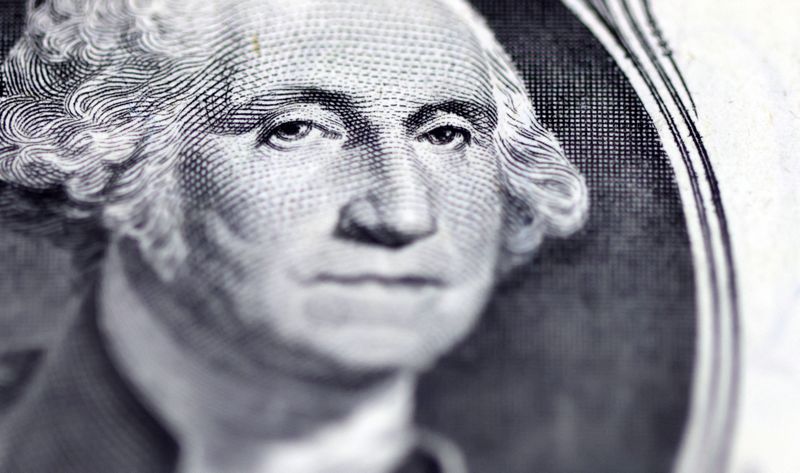 © Reuters. U.S. Dollar banknote is seen in this illustration taken July 17, 2022. REUTERS/Dado Ruvic/Illustration
© Reuters. U.S. Dollar banknote is seen in this illustration taken July 17, 2022. REUTERS/Dado Ruvic/Illustration
By Herbert Lash and Alun John
NEW YORK/LONDON (Reuters) -U.S. stock indexes closed mixed and the dollar slid a bit on Tuesday after companies warned of a tough year ahead along with some profit beats, while data showed U.S. business activity contracted for a troubling seventh straight month in January.
S&P Global (NYSE:SPGI)'s Flash U.S. Composite Output Index last month rose to 46.6, below a reading of 50 where growth begins. Companies reported soft demand amid still high inflation that remains a headwind to customer spending, the report showed.
Real GDP growth is likely to turn negative in the first half of 2023, said Bill Adams, chief economist for Comerica (NYSE:CMA) Bank in Dallas, in a note.
"The economy still might dodge a recession," he wrote. "But the many financial and economic indicators economists use to forecast business-cycle turning points suggest that a recession is more likely near term."
The S&P 500 and Nasdaq closed slightly lower after bellwethers including 3M, Johnson & Johnson (NYSE:JNJ), Verizon (NYSE:VZ) and GE reported mixed results. The Dow rose as Traveler Cos, American Express (NYSE:AXP) and JPMorgan Chase (NYSE:JPM) provided almost half its gains.
After the market closed, Microsoft Corp (NASDAQ:MSFT) posted better-than-expected quarterly profit as a revenue jump at its cloud services unit helped offset a slump in the personal computer market, sending its shares 4% higher in after-hours trade.
"What really is going to define whether the Nasdaq is going to continue to do well this year is how the earnings outlook looks, with Microsoft starting today," said King Lip, chief investment strategist at BakerAvenue Wealth Management in San Francisco.
Up to Monday the Nasdaq had gained almost 10% this year due to declining interest rates and a rebound after significant declines last year, Lip said.
The Dow Jones Industrial Average rose 0.31%, the S&P 500 lost 0.07% and the Nasdaq Composite dropped 0.27%.
Earlier in Europe, S&P Global data for the euro zone reinforced expectations the European Central Bank (ECB) will raise rates by a further 50 basis points on Feb. 2, a day after the Fed is expected to have raised rates by 25 basis points.
Euro zone business activity made a surprise return to growth in January, according to the S&P Global survey - the latest sign that the downturn in the bloc may not be as deep as feared.
The pan-European STOXX 600 index closed down 0.24%.
Overnight, Japan's Nikkei closed at a more than one-month high, recovering all its losses since the Bank of Japan's surprise policy tweak last month. Many Asian markets remained closed for the Lunar New Year.
MSCI's all-country world index gained 0.04% to eke out a fresh five-month closing high.
The euro was flat at $1.0885, holding near a nine-month high supported by expectations the ECB can continue to raise rates to curb inflation, without worrying too much about damaging growth.
Treasury yields were mostly lower in choppy trading as investors looked ahead to next week's Fed policy meeting.
The yield on 10-year Treasury notes fell 6.8 basis points to 3.455%.
Germany's 10-year yield was steady at 2.157%.
Crude oil prices slipped on concerns about a global economic slowdown and an expected build in U.S. oil inventories.
U.S. crude futures fell $1.49 to settle at $80.13 a barrel, while Brent settled down $2.06 at $86.13.
Gold prices pulled back from a nine-month high due to a slight uptick in the dollar and U.S. bond yields, though hopes of slower Fed rate hikes underpinned the market.
U.S. gold futures settled up 0.4% at $1,935.40 an ounce.

